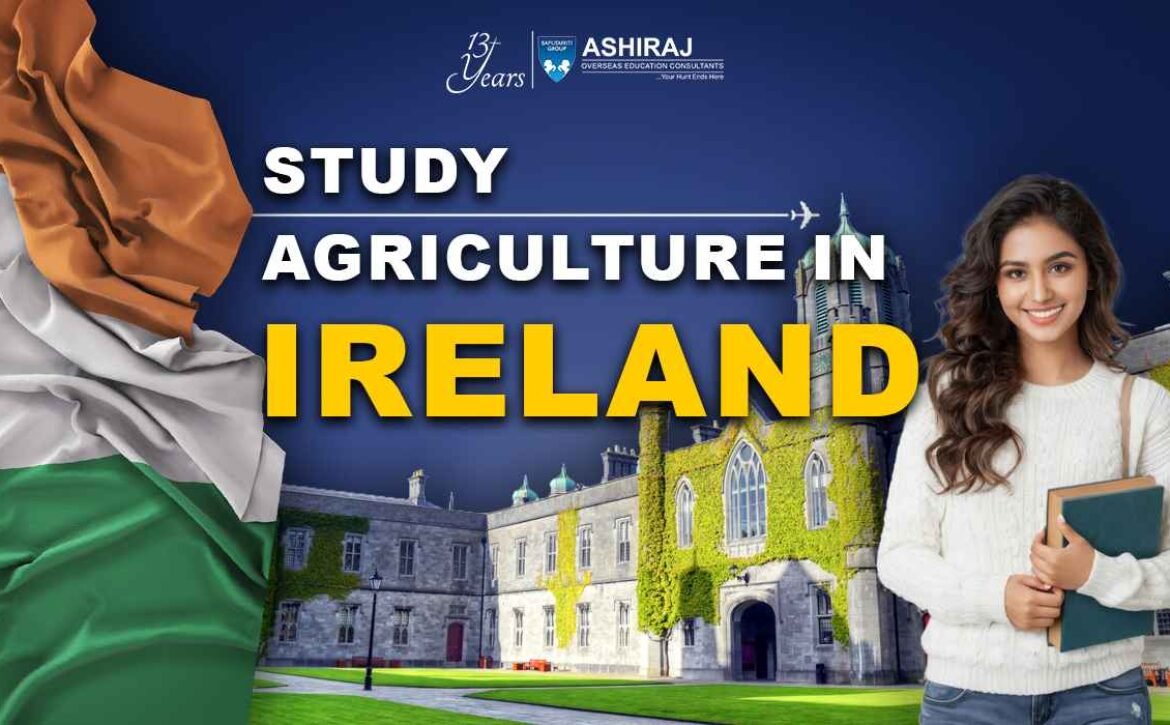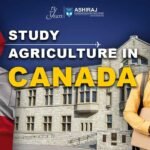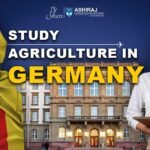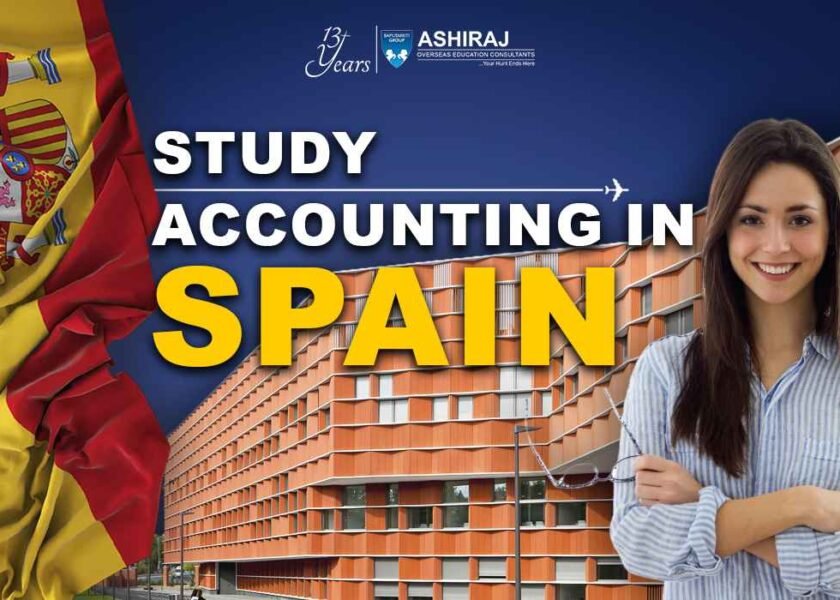
Agriculture in Ireland
Agriculture in Ireland holds a rich historical significance, deeply interwoven with the nation’s cultural identity and economic landscape. With its lush green landscapes and favorable climate, Ireland has long been known as the Emerald Isle, renowned for its agricultural prowess. The sector encompasses a diverse range of activities, from traditional farming methods to modern agribusiness practices, contributing significantly to the country’s economy and rural livelihoods.
In recent years, Agriculture in Ireland has undergone notable transformations, embracing sustainable practices and technological advancements to meet evolving global demands while minimizing environmental impact. The sector plays a crucial role in Ireland’s export-oriented economy, with products such as beef, dairy, and agricultural machinery enjoying international recognition for their quality and reliability. As Ireland navigates challenges such as climate change and Brexit, the agriculture sector remains resilient, poised to adapt and innovate to secure its position as a cornerstone of the nation’s prosperity and heritage.
Why to Study Agriculture in Ireland?
- Rich Agricultural Heritage: Ireland boasts a long-standing tradition of agriculture, deeply rooted in its culture and history, offering students a unique opportunity to immerse themselves in a thriving agricultural environment.
- Cutting-Edge Education: Irish universities and agricultural institutions provide top-tier education, integrating traditional knowledge with modern techniques and technologies, ensuring students receive a comprehensive understanding of the field.
- Global Recognition: Agriculture in Ireland is internationally acclaimed for its high standards and innovation, providing students with credentials that are highly valued in the global job market.
- Practical Experience: With Ireland’s vast rural landscapes and diverse agricultural practices, students have ample opportunities for hands-on learning, internships, and research projects, enhancing their practical skills and industry knowledge.
- Networking Opportunities: Studying agriculture in Ireland allows students to connect with industry professionals, researchers, and policymakers, fostering valuable relationships that can pave the way for future career opportunities.
- Sustainable Focus: Ireland is increasingly prioritizing sustainable agriculture, making it an ideal location for students passionate about environmental stewardship and seeking to contribute to sustainable food production practices.
- Career Prospects: Graduates of agricultural programs in Ireland are in high demand both domestically and internationally, with diverse career paths available in farming, agribusiness, research, policymaking, and more.
- Cultural Experience: Beyond academics, studying agriculture in Ireland offers students a chance to immerse themselves in the country’s rich culture, traditions, and vibrant rural communities, enriching their overall educational experience.
Top Universities to Study Agriculture in Ireland
University | QS World University Ranking 2023 | Type of University | Average Annual Fees | Programs Offered |
University College Dublin | 101-150 | Public | €12,000 – €25,000 | Agricultural Science, Food Science, Agribusiness |
University College Cork | 201-250 | Public | €11,000 – €24,000 | Agriculture, Food Business and Development |
Teagasc College of Amenity | Not Ranked | Public | €7,000 – €15,000 | Agriculture, Horticulture, Forestry |
National University of | ||||
Ireland Galway | 301-350 | Public | €10,000 – €21,000 | Agricultural Science, Environmental Science |
Dundalk Institute of | ||||
Technology | Not Ranked | Public | €9,000 – €18,000 | Agriculture, Environmental Management |
Agriculture in Ireland is greatly enriched by its top universities offering comprehensive programs tailored to meet the demands of the agricultural sector. Here’s a list of the top universities in Ireland renowned for their excellence in agricultural education, as per the QS World University Rankings 2023.
- University College Dublin: Ranked between 101-and 150 globally, UCD offers a wide range of programs in Agricultural Science, Food Science, and Agribusiness, with annual fees ranging from €12,000 to €25,000.
- University College Cork: Ranked between 201-250 globally, UCC provides programs in Agriculture and Food Business and Development, with average annual fees ranging from €11,000 to €24,000.
- Teagasc College of Amenity: Although not ranked in the QS rankings, Teagasc offers affordable programs in Agriculture, Horticulture, and Forestry, with fees ranging from €7,000 to €15,000.
- National University of Ireland Galway: Ranked between 301-350 globally, NUIG offers programs in Agricultural Science and Environmental Science, with annual fees ranging from €10,000 to €21,000.
- Dundalk Institute of Technology: While not ranked in QS, DkIT offers programs in Agriculture and Environmental Management, with fees ranging from €9,000 to €18,000. These institutions provide students with a solid foundation and practical skills necessary for success in the dynamic field of agriculture.
Course Curriculum for Agriculture in Ireland
- Comprehensive Core Subjects: Agriculture in Ireland offers a well-rounded curriculum covering essential topics such as crop science, animal husbandry, soil management, and agricultural economics, ensuring students gain a holistic understanding of the industry.
- Practical Training Modules: The curriculum emphasizes hands-on learning through practical training modules, fieldwork, and internships, allowing students to apply theoretical knowledge to real-world agricultural settings effectively.
- Specialized Electives: Students have the flexibility to choose from a range of specialized electives based on their interests and career goals, including areas like sustainable agriculture, agribusiness management, precision farming, and agricultural technology.
- Research Opportunities: Agriculture programs in Ireland provide ample opportunities for research and innovation, enabling students to explore emerging trends, address industry challenges, and contribute to advancements in agricultural practices and technologies.
- Industry Engagement: The curriculum fosters industry engagement through guest lectures, industry partnerships, and collaborative projects, exposing students to diverse perspectives and enhancing their networking opportunities within the agricultural sector.
- Focus on Sustainability: With growing global concerns about sustainability, the curriculum integrates modules on sustainable agriculture, environmental stewardship, and resource management, equipping students with the skills and knowledge to address environmental challenges facing the agriculture industry.
- Global Perspective: Agriculture in Ireland acknowledges the interconnectedness of global agricultural systems and incorporates modules on international agricultural trade, policy, and development, preparing students for careers in a globally competitive market.
- Continuous Evolution: The curriculum is continuously updated to reflect evolving industry trends, technological advancements, and regulatory changes, ensuring that graduates are equipped with the most relevant and up-to-date knowledge and skills to excel in the field of agriculture.
Eligibility Criteria & Admission Requirements for MS in Agriculture in Ireland
- Language Proficiency:
Applicants must demonstrate proficiency in English by providing either IELTS or TOEFL scores.
IELTS: Minimum score of 6.5 overall, with no individual band score below 6.0.
TOEFL: Minimum score of 90, with at least 20 in each section.
- Standardized Tests:
Prospective students may be required to submit GRE or GMAT scores, depending on the university’s requirements.
GRE: Minimum scores vary by institution, typically around 160 for Quantitative Reasoning and 150 for Verbal Reasoning.
GMAT: Minimum score requirements vary, with an average score of around 600-650.
- Academic Credentials:
Applicants must hold a bachelor’s degree or its equivalent in a relevant field, such as agriculture, biology, or environmental science, from a recognized institution.
- Passport & Student Visa:
International students must possess a valid passport and obtain a student visa to study in Ireland. The visa application process typically requires proof of acceptance from an Irish university, financial stability, and health insurance coverage.
- Academic Certificates:
Applicants should submit transcripts and academic certificates demonstrating their educational background and qualifications.
- Work Experience:
While not always mandatory, some programs may prefer applicants with relevant work experience in agriculture or related fields, which can strengthen their application.
Adhering to these eligibility criteria ensures that prospective students meet the requirements to pursue agricultural studies in Ireland, facilitating a smooth application process and enhancing their academic journey in Agriculture in Ireland.
Documents Required for Studying Agriculture in Ireland
- Passport:
A valid passport is essential for international students applying to study agriculture in Ireland.
- Two Letters of Recommendation (LOR):
Applicants typically need to provide two letters of recommendation from academic or professional references attesting to their qualifications and suitability for the program.
- Statement of Purpose (SOP):
An SOP outlining the applicant’s academic background, career goals, and reasons for choosing agriculture in Ireland is often required.
- Curriculum Vitae (CV):
A comprehensive CV highlighting the applicant’s academic achievements, work experience, extracurricular activities, and skills relevant to agriculture is necessary.
- Official High School Transcripts and Certificates:
Applicants must submit transcripts and certificates from their high school or secondary education institutions to demonstrate their academic qualifications.
- Work Experience Certificate:
If applicable, a work experience certificate detailing relevant work experience in agriculture or related fields should be provided.
- Proof of Financial Resources:
Applicants must demonstrate sufficient financial resources to cover tuition fees, living expenses, and other costs associated with studying and living in Ireland. This may include bank statements, scholarship letters, or sponsorship letters.
Ensuring the submission of these documents is crucial for a successful application process to pursue studies in Agriculture in Ireland.
Admission Process for Agriculture in Ireland
- Research Institutions:
Explore universities and colleges in Ireland offering agriculture programs, considering factors like curriculum, faculty expertise, and facilities.
- Check Eligibility:
Ensure you meet the eligibility criteria, including academic requirements, language proficiency, and standardized test scores (if applicable).
- Prepare Documents:
Gather required documents such as passport, academic transcripts, certificates, letters of recommendation, statement of purpose, curriculum vitae, work experience certificate, and proof of financial resources.
- Language Proficiency:
Take the necessary language proficiency tests such as IELTS or TOEFL and achieve the minimum required scores.
- Standardized Tests:
If required, prepare for and take standardized tests like GRE or GMAT, aiming to meet or exceed the institution’s minimum score requirements.
- Application Submission:
Complete the online application form for your chosen institution, ensuring all sections are accurately filled and all required documents are attached.
- Application Fee:
Pay the application fee as per the institution’s instructions.
- Submit Application:
Submit your completed application before the specified deadline.
- Wait for Decision:
Await the admission decision from the institution, which may take several weeks.
- Acceptance and Visa:
Upon acceptance, follow the procedures for obtaining a student visa and fulfilling any additional requirements set by the institution.
Following these steps meticulously will streamline the admission process for studying Agriculture in Ireland.
“Education is the most powerful weapon which you can use to change the world.”
Nelson Mandela
Cost of Agriculture Course in Ireland
- Tuition Fees:
Tuition fees for agriculture programs in Ireland vary depending on the institution and the level of study (undergraduate or postgraduate).
On average, undergraduate tuition fees range from €10,000 to €25,000 per year, while postgraduate fees can range from €12,000 to €30,000 per year.
- Accommodation:
The cost of accommodation in Ireland varies based on location and type (on-campus or off-campus).
On-campus accommodation typically ranges from €5,000 to €10,000 per academic year, while off-campus options may vary.
- Living Expenses:
Living expenses including food, transportation, utilities, and other personal expenses average around €8,000 to €12,000 per year.
- Health Insurance:
International students are required to have health insurance coverage, which can cost approximately €500 to €1,000 per year.
- Books and Supplies:
Budget for books, stationery, and other academic supplies, which may amount to €500 to €1,000 per year.
- Miscellaneous Costs:
Consider additional expenses such as visa fees, travel, and leisure activities, which can vary depending on individual preferences.
- Scholarships and Financial Aid:
Explore scholarship opportunities and financial aid options offered by universities, government agencies, and external organizations to help offset the cost of studying Agriculture in Ireland.
Understanding the various costs associated with studying Agriculture in Ireland is essential for prospective students to plan their finances effectively.
Scholarships for Agriculture Courses in Ireland
Scholarship Name | Amount | Application Deadline |
Teagasc Postgraduate | Up to €25,000 per year | April 30th |
Research Studentship | ||
UCD School of Agriculture | €3,000 – €5,000 | May 15th |
and Food Science Scholarships | per year | |
University College Cork | Up to €3,000 | June 1st |
Taught Master’s Scholarships | per year | |
Agri-Food and Biosciences | €5,000 – €10,000 | March 31st |
Institute (AFBI) PhD | per year | |
Studentship | ||
National University of | Up to €6,000 | February 28th |
Ireland Galway College | per year | |
of Science and Engineering |
Agriculture in Ireland offers several scholarship opportunities for students pursuing studies in the field. Here are some scholarships specifically tailored for agricultural students, along with their amounts and application deadlines:
- Teagasc Postgraduate Research Studentship: Offers up to €25,000 per year and has an application deadline of April 30th.
- UCD School of Agriculture and Food Science Scholarships: Provides €3,000 to €5,000 per year with an application deadline of May 15th.
- University College Cork Taught Master’s Scholarships: Grants up to €3,000 per year, with an application deadline of June 1st.
- Agri-Food and Biosciences Institute (AFBI) PhD Studentship: Offers €5,000 to €10,000 per year and has an application deadline of March 31st.
- National University of Ireland Galway College of Science and Engineering: Provides up to €6,000 per year with an application deadline of February 28th. These scholarships alleviate financial burdens and support students in pursuing their academic endeavors in Agriculture in Ireland.
Career Opportunities After Agriculture in Ireland
Job Profile | Average Salary (per year) |
Agricultural Researcher | €30,000 – €45,000 |
Agricultural Consultant | €35,000 – €50,000 |
Farm Manager | €35,000 – €50,000 |
Agronomist | €35,000 – €55,000 |
Food Technologist | €35,000 – €60,000 |
Agricultural Engineer | €40,000 – €65,000 |
Livestock Nutritionist | €40,000 – €70,000 |
Environmental Consultant | €45,000 – €70,000 |
Agriculture in Ireland offers many career opportunities for graduates in the field. Here are some job profiles along with their average salaries per year:
- Agricultural Researcher: Earns between €30,000 to €45,000 annually, conducting research to improve agricultural practices and crop yields.
- Agricultural Consultant: Receives an average salary ranging from €35,000 to €50,000 per year, providing expert advice on farm management, sustainability, and agribusiness.
- Farm Manager: Manages farm operations and personnel, earning €35,000 to €50,000 annually.
- Agronomist: Earns between €35,000 to €55,000 per year, specializing in crop production and soil management.
- Food Technologist: Receives an average salary ranging from €35,000 to €60,000 annually, working in food processing, quality control, and product development.
- Agricultural Engineer: Earns between €40,000 to €65,000 per year, designing and implementing agricultural machinery and infrastructure.
- Livestock Nutritionist: Receives an average salary ranging from €40,000 to €70,000 annually, specializing in animal nutrition and feed formulation.
- Environmental Consultant: Earns between €45,000 to €70,000 per year, advising on environmental sustainability and compliance in agriculture. These career opportunities showcase the diverse pathways available to graduates in Agriculture in Ireland, offering rewarding prospects and competitive salaries.
Frequently Asked Questions About Agriculture in Ireland
Main crops grown in Ireland include barley, wheat, oats, potatoes, and sugar beets. Additionally, Ireland is known for its grasslands, which are vital for livestock grazing and dairy production.
Yes, Ireland offers numerous opportunities for international students to study agriculture. Many universities and colleges in Ireland offer undergraduate and postgraduate programs in agriculture, welcoming students from around the world.
Agriculture is a significant contributor to the Irish economy, providing employment and generating revenue through exports. It is vital in rural communities and contributes to Ireland’s food security and self-sufficiency.
Graduates in agriculture in Ireland can pursue various career paths, including agricultural research, farm management, agronomy, agricultural consultancy, food technology, and environmental conservation.
Yes, several scholarships are available for students studying agriculture in Ireland. Universities, government agencies, and private organizations offer these scholarships to support students in their academic pursuits.
Ireland’s temperate maritime climate, characterized by mild winters and cool summers, is well-suited for agriculture. It supports the growth of a wide range of crops and facilitates year-round grazing for livestock.
Yes, sustainable agriculture is increasingly emphasized in Ireland. Farmers and policymakers are adopting practices that promote environmental stewardship, biodiversity conservation, and resource efficiency to ensure the long-term viability of agriculture.
Yes, international students studying agriculture in Ireland are typically allowed to work part-time during term time and full-time during scheduled breaks, subject to certain restrictions and regulations.
Ireland implements strict regulations and standards to ensure food security and food safety in agriculture. These measures include quality control, traceability systems, and compliance with EU regulations.
Irish agriculture is witnessing trends towards sustainable practices, precision farming technologies, digital agriculture, and diversification into niche markets such as organic farming and speciality crops. These innovations aim to enhance productivity, efficiency, and environmental sustainability in the agricultural sector.




